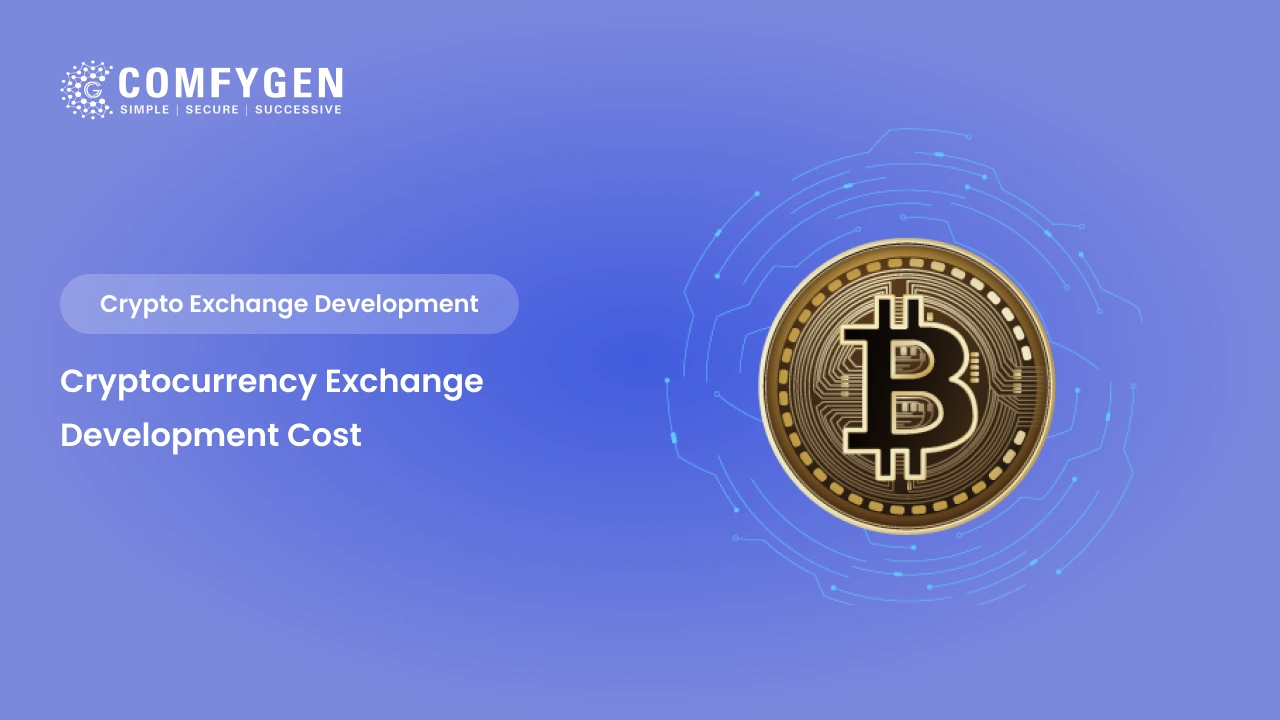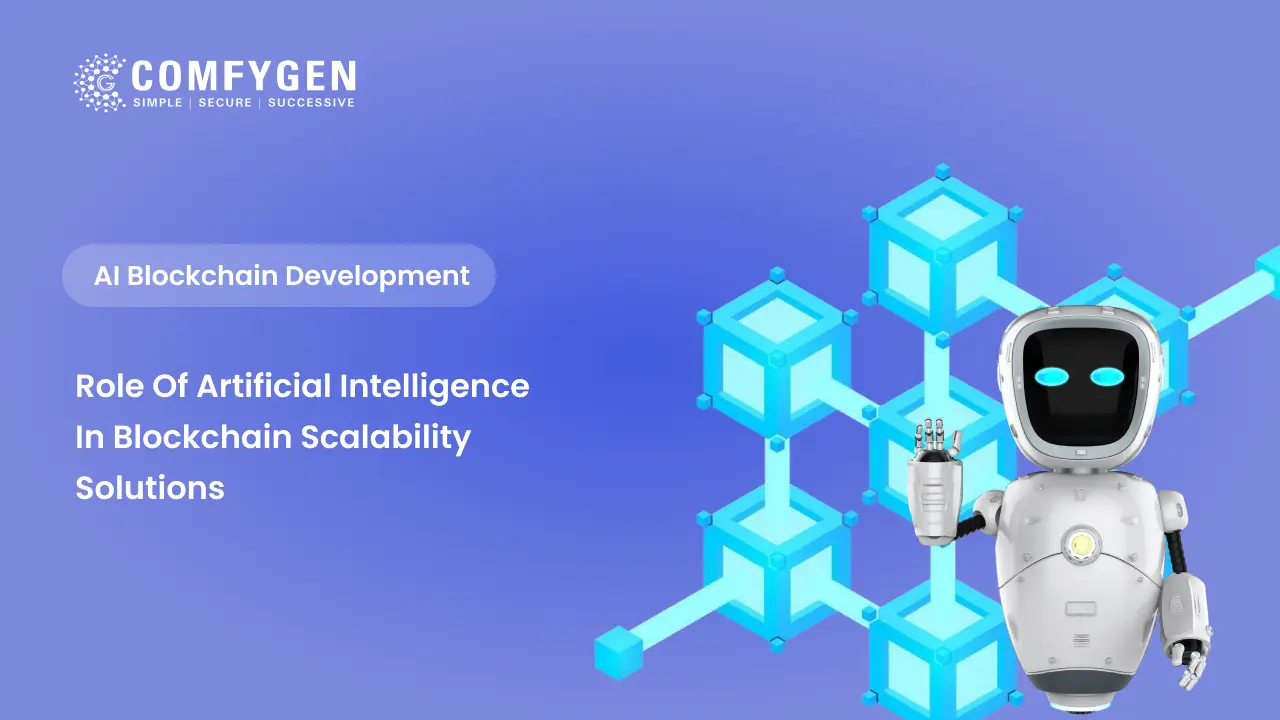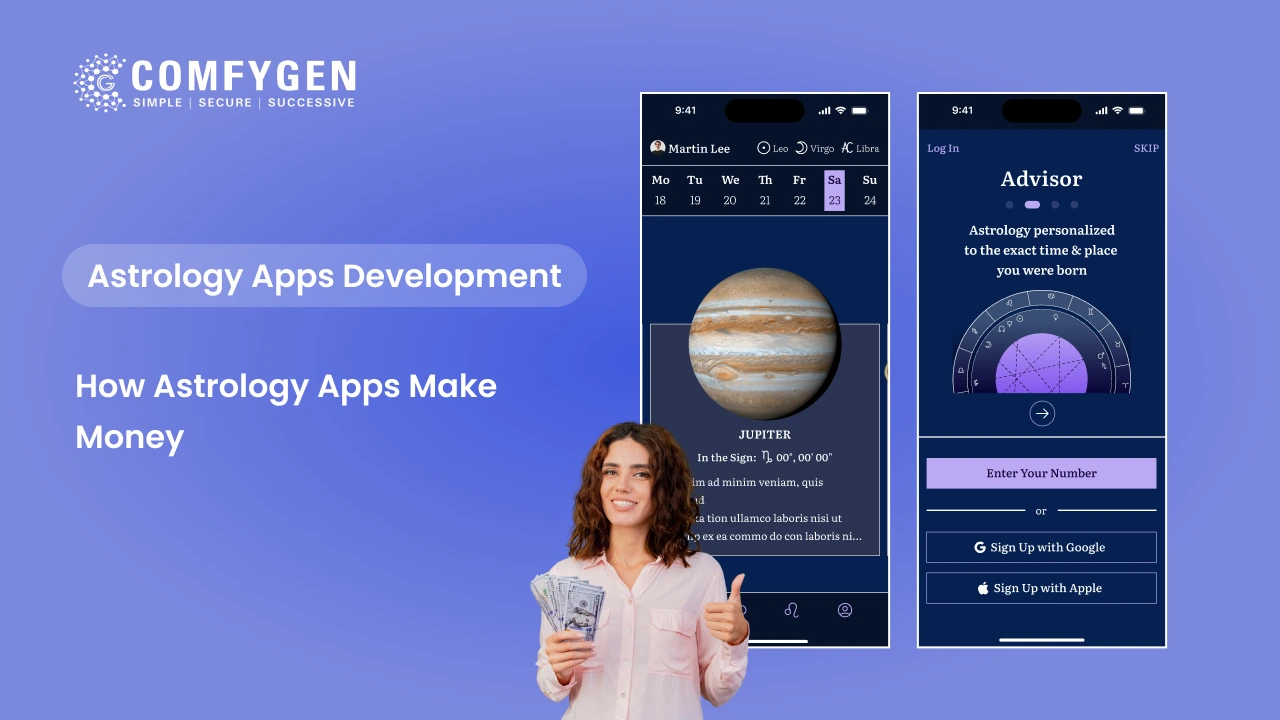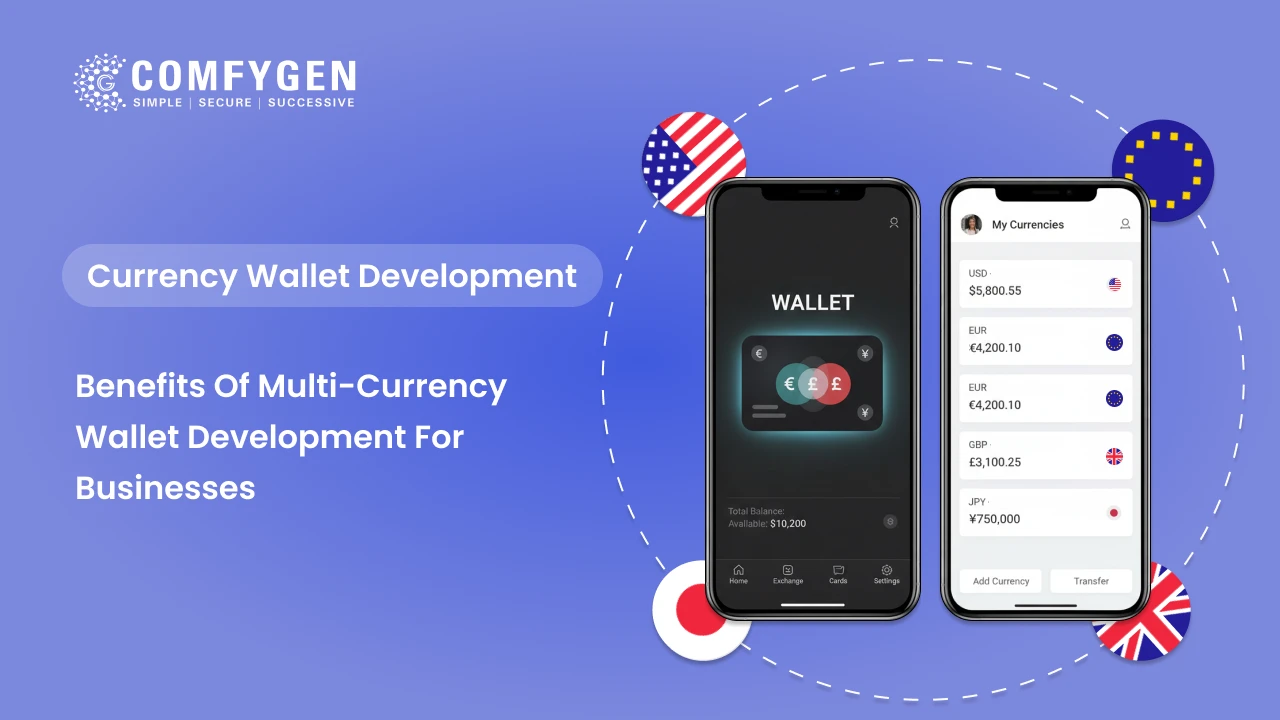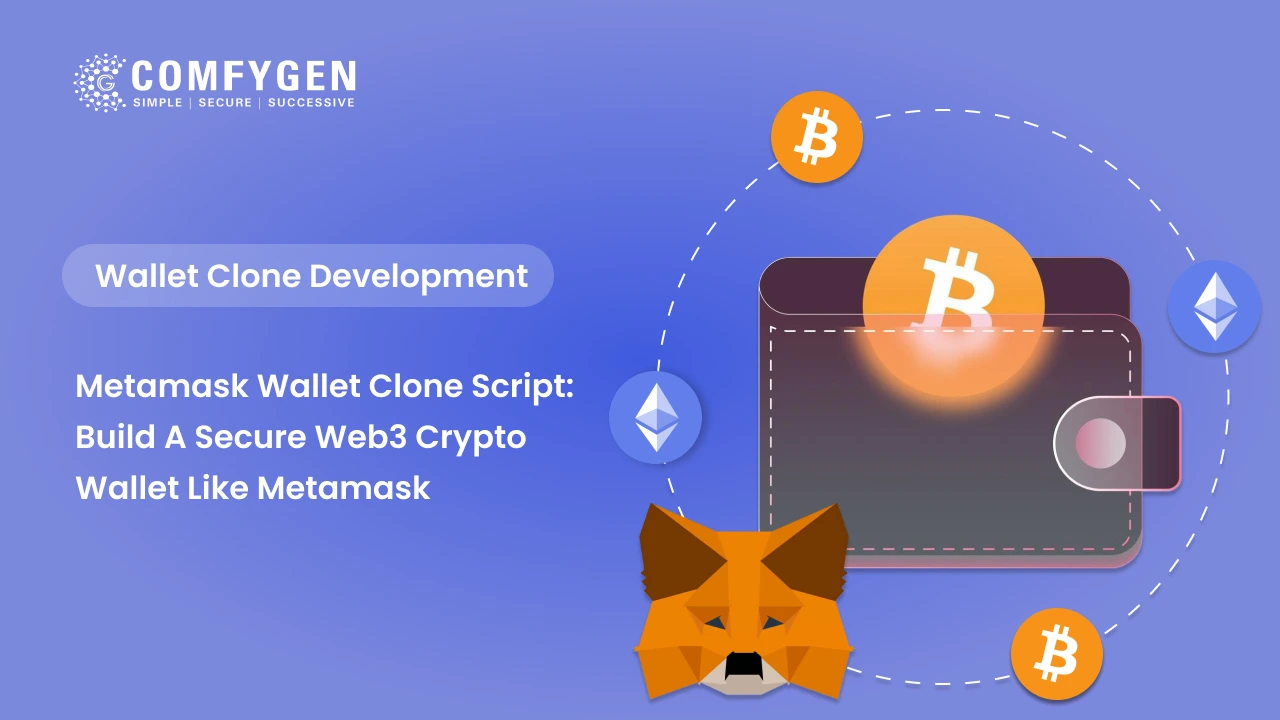Cryptocurrency Exchange Development Cost in 2025
Are you thinking of building a custom crypto exchange app? The first question would be the crypto exchange app development cost. This blog answers your question below.
More than 560 million crypto exchange app owners exist in the market, of which 65% are entrepreneurs planning to make their apps a big success with huge transactions and a long-term buy-and-hold strategy.
With such a big number, competition becomes complex. Here comes the need for building a reliable and custom crypto exchange platform.
The cost breakdown on the basis of features, functions, security measures, customization, integrations, compliance needs, and more is explained here. Details will help you choose the required features & functions for the application within the right cost bars.
How Much Does it Cost to Build a Cryptocurrency Exchange?
A new crypto exchange can be built at a cost between $30000_$150000. This cryptocurrency exchange development cost might go up to $300000 as well, depending on various factors. Also, it depends on whether you are building a centralized exchange (CEX) or a decentralized exchange (DEX).
Therefore, we have a breakdown of the crypto exchange software development cost based on various factors. Check with the key components to estimate for your own project’s development.
UX/UI Designs
UI/UX designs ensure a seamless and intuitive trading experience. It involves wireframing, prototypes, and responsive layouts for web and mobile applications.
The user experience will influence user retention, conversion rates, and their onboarding flow. More screens, many device types, and micro-interactions will increase complexity, directly higher the cost.
User Authentication & Compliance (KYC/AM)
KYC (Know Your Customer) and AML (Anti-Money Laundering) are two modules that verify user identities and ensure regulatory compliance. It includes documentation uploads, facial recognition, risk scoring, and database checks.
However, third-party integrations like Onfido and Jumio incur licensing costs and affect the backend and data privacy architecture.
Trading Engine
The trading engine handles order matching, execution logic, and price determination in real time. It supports limit, market, and stop orders, manages the order book, and ensures millisecond-level performance.
As the core logic layer, it requires robust architecture and low-latency optimization, influencing both cost and scalability.
Blockchain Integration
This layer connects the app to specific blockchain networks like Bitcoin, Ethereum, or BNB Chain. It enables deposit, withdrawal, transaction verification, and token integration.
Developers must manage nodes, APIs, and smart contract interactions, making this a complex, high-skill, and infrastructure-sensitive component with notable cost implications.
Liquidity Integration
Liquidity integration connects your crypto exchange software to global liquidity pools or market makers, ensuring smooth trading and price stability. It often uses APIs from Binance, Kraken, or aggregators.
Custom order routing, slippage management, and latency handling add to backend logic and increase development and compliance costs.
Wallet Integration
Hot wallets enable users to store, send, and receive cryptocurrencies instantly. Integration includes private key management, multi-sig functionality, and encryption.
Crypto exchange app developers must make sure compatibility with blockchain nodes and handle token standard protocols (e.g., ERC-20, BEP-20). It’s a sensitive component with high security and compliance overhead.
Cold Wallet Storage
Cold wallets store crypto assets offline to prevent unauthorized access or hacking. Integration may involve secure hardware (e.g., Ledger, Trezor) or air-gapped solutions.
Institutional clients often demand this for large holdings. Costs include hardware integration, transaction processing delays, and secure physical and digital asset handling.
Payment Gateway Integration
Fiat-to-crypto and vice versa conversions rely on secure payment gateway APIs (e.g., Stripe, MoonPay). This module includes transaction encryption, currency conversion, settlement logic, and chargeback management.
Compliance with PCI-DSS standards and integration with banks or card networks increases both development and recurring operational costs.
Smart Contract & Audits
Smart contracts automate token swaps, staking, and DeFi features. Written in Solidity (Ethereum) or Rust (Solana), they need rigorous third-party audits to ensure they’re secure and tamper-proof.
Vulnerability detection, gas optimization, and audit certifications add critical security layers and significantly influence launch cost and timelines.
Admin Panel & Analytics
This backend module allows admins to manage users, monitor trades, enforce KYC, and track app performance. Dashboards include analytics on trading volume, user activity, and liquidity.
Features like role-based access, version control, and incident tracking increase scope, demanding more time for design, logic, and security.
Load Balancer & Auto-Scaling
To maintain performance during traffic spikes, load balancers distribute network requests across servers. Auto-scaling adjusts server instances based on real-time demand using platforms like AWS or GCP.
These DevOps features are essential for 24/7 uptime, minimizing downtime and system crashes, and adding both infrastructure and setup costs.
Security & Encryption
Security is non-negotiable in crypto exchange development. It includes data encryption (AES-256), two-factor authentication (2FA), DDoS protection, firewall configuration, and anti-phishing protocols.
Developers must follow OWASP guidelines and implement secure coding practices. Third-party audits, SSL certificates, and real-time monitoring tools also contribute to ongoing security expenses.
Testing & QA
Rigorous testing ensures the app functions correctly under different conditions. QA includes functional testing, UI testing, security penetration testing, and load testing.
Automated test scripts, test case management, and regression testing tools ensure bug-free deployment, adding time and cost based on platform complexity and user flows.
Deployment & Hosting
This involves crypto exchange development on cloud platforms like AWS, GCP, or Azure. Hosting configurations include Docker containers, Kubernetes clusters, CI/CD pipelines, and CDN integration.
Cost depends on usage, storage, traffic, and uptime requirements. Proper deployment ensures fast performance, rollback safety, and continuous availability.
Maintenance & Support
Ongoing maintenance has additional costs to develop a crypto exchange app, which include bug fixes, performance optimization, feature updates, and compliance adjustments. This also covers server uptime monitoring, user support, and patch deployment.
As crypto laws evolve, maintaining relevance and security becomes essential. Typically, annual maintenance costs are 15–25% of total crypto exchange app development expenses.
Cost Breakdown Based on Crypto Exchange App Development Process
| Development Stage | Estimated Cost (USD) |
| Discovery Planning | $5,000-$10,000 |
| UI/UX Design | $6,000-$12,000 |
| Frontend Development | $10,000-$20,000 |
| Backend Development | $20,000 – $40,000 |
| Blockchain Integration | $8,000 – $15,000 |
| Wallet Development | $7,000 – $15,000 |
| KYC/AML Integration | $4,000 – $8,000 |
| Liquidity Integration | $6,000 – $12,000 |
| Payment Gateway Integration | $4,000 – $10,000 |
| Admin Panel & Analytics | $5,000 – $10,000 |
| Security Implementation | $8,000 – $15,000 |
| Testing & QA | $6,000 – $12,000 |
| Deployment & Hosting | $3,000 – $7,000 |
| Maintenance & Support | $10,000 – $20,000/year |
- Basic Exchange (MVP): $60,000 – $80,000
- Advanced Exchange: $90,000 – $140,000
- Enterprise-Grade Exchange: $150,000 – $250,000+
Regional Cost Comparison: Crypto Exchange Development Costs by Country
The cost to start a crypto exchange development will fluctuate depending upon regions or countries. For cryptocurrency exchange development, various companies and developers quote different prices depending on the standard country cost.
Such as:
| Regions | Cost Per Hour ($) | Project Cost ($) |
| North America (USA/Canada) | $100-$150 | $150000-$250000 |
| Western Europe (UK/Germany) | $80-$150 | $120000-$200000 |
| Eastern Europe (Ukraine/Poland) | $40-$70 | $70000-$120000 |
| India | $30-$80 | $50000-$120000 |
| UAE/Middle East | $50-$100 | $80000-$150000 |
| Sounthest Asia (Phillippines/Vietnam) | $30-$60 | $55000-$95000 |
- USA & Western Europe offer top-tier quality but come with premium pricing.
- India & Eastern Europe are cost-effective with excellent developer talent.
- Middle East firms often specialize in regulatory-compliant fintech systems.
- Offshore development helps reduce costs but may require stronger project management and communication alignment.
Hidden Costs You Shouldn’t Ignore in Crypto Exchange Development
Besides the total crypto exchange development cost; you must keep 15%-20% extra amount for the hidden costs that’s been ignored. The hidden costs will add in the budget while the development is work-in-progress.
Legal Licensing & Compliance
Regulatory approvals and legal consultations vary by country, often requiring recurring audits and documentation updates to remain compliant.
Third-Party API Subscriptions
APIs for KYC, price feeds, or notifications usually charge monthly fees based on usage, volume, or user activity.
Bug Bounty & Penetration Testing
Hiring ethical hackers or security firms to detect vulnerabilities ensures platform safety but adds significant recurring security expenses.
Real-Time Security Monitoring
Ongoing costs for firewall services, DDoS protection, and intrusion monitoring tools help prevent hacks and data breaches.
App Store Deployment Charges
App Store and Play Store require one-time or annual developer fees and may take a cut from in-app payments.
Hosting & Cloud Infrastructure
Auto-scaling servers, CDNs, and managed databases incur monthly cloud service fees, increasing with user traffic and app load.
Customer Support Setup
Helpdesk tools and live support teams are necessary post-launch and incur monthly software and personnel expenses.
Marketing & User Acquisition
SEO, paid ads, influencer campaigns, and loyalty rewards require continuous investment to attract, convert, and retain users.
Regulatory Updates & Audits
Frequent crypto regulation changes require legal advice and backend updates to maintain full compliance in all target markets.
Currency Conversion & Bank Fees
Bank settlements, forex markups, and cross-border fees reduce profit margins when handling fiat transactions across multiple regions.
How to Choose the Best Crypto Exchange App Development Company?
Choosing the right cryptocurrency exchange app development company is crucial for building a secure, scalable, and regulation-ready crypto exchange that stands out in a competitive market.
Not all development companies are equipped to handle the complexity of crypto platforms. From technical expertise to post-launch support, here are the key factors to consider before making your decision:
Proven Blockchain Experience
Look for companies with a strong portfolio of crypto or blockchain-based projects. Prior experience reduces risk and speeds up development.
Security-First Approach
Ensure they prioritize encryption, wallet protection, DDoS prevention, and follow OWASP best practices for secure architecture.
Regulatory Understanding
A good company will understand regional laws (e.g., GDPR, SOC-2, PCI-DSS) and help implement KYC/AML modules appropriately.
End-to-End Services
Choose firms that handle everything—from UI/UX design and backend development to testing, deployment, and maintenance.
Transparent Pricing & Timelines
Avoid vague estimates. Look for clear, milestone-based pricing, transparent contracts, and realistic timelines.
Post-Launch Support
Ensure they offer long-term support, updates, and bug fixes post-deployment.
Client Reviews & References
Check platforms like Clutch, GoodFirms, or LinkedIn for verified testimonials and project case studies.
How Comfygen Can Help with Crypto Exchange Software Development Company?
Comfygen is a leading cryptocurrency exchange app development company with deep expertise in blockchain, DeFi, and fintech solutions. Our team specializes in building secure, scalable, and regulation-compliant crypto exchange platforms tailored to your business needs.
From KYC/AML integration and multi-currency wallets to high-performance trading engines and mobile apps—we offer end-to-end cryptocurrency exchange development services.
Whether you’re launching a centralized, decentralized, or hybrid exchange, Comfygen ensures fast time-to-market and unmatched post-launch support. Partner with us to transform your crypto vision into a reliable, future-ready platform trusted by users worldwide.
Key Takeaways
Building a cryptocurrency exchange app is a complex yet scalable solution. The total crypto exchange app development cost depends on multiple factors; such as design quality, tech stack, security standards, compliance requirements, and chosen development team.
However, you’re building an MVP or an enterprise-grade solution, budgeting correctly and understanding every cost component is essential for long-term profits and success.
Choosing the best cryptocurrency exchange software development company can make all the difference.
With a reliable, experienced crypto exchange app developers, you can streamline the crypto exchange development process, ensure regulatory alignment, and launch a secure, user-friendly crypto exchange that stands out in a competitive market within budget.
You need to plan smart, invest wisely, and focus on building a platform that not only supports transactions but also earns user trust and scales seamlessly with your growth goals.

Mr. Saddam Husen, (CTO)
Mr. Saddam Husen, CTO at Comfygen, is a renowned Blockchain expert and IT consultant with extensive experience in blockchain development, crypto wallets, DeFi, ICOs, and smart contracts. Passionate about digital transformation, he helps businesses harness blockchain technology’s potential, driving innovation and enhancing IT infrastructure for global success.
Based on Interest

Grocery Delivery App Development Challenges: Common Problems and How to Overcome Them
In today's fast-paced digital age, the online grocery delivery industry is experiencing significant growth. With consumers preferring doorstep facilities over traditional shopping,…

